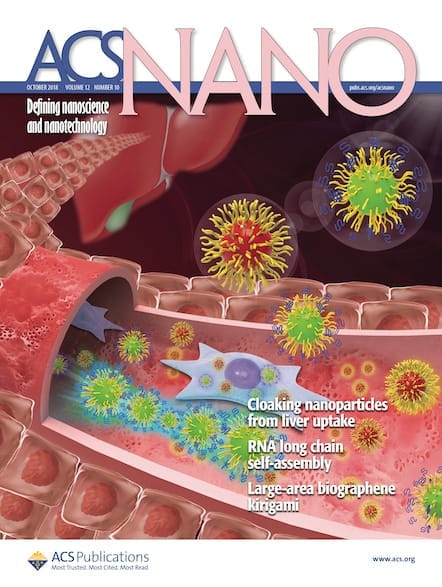The following is an editorial adapted from the current issue of ACS Nano. We join the world of science and engineering in mourning the loss last month of Prof. Millie Dresselhaus, an international treasure, a scientific leader, and a mentor to many of us. Prof. Dresselhaus had an inspiring life and career; she broadcast her […]

The following is an editorial adapted from the current issue of ACS Nano.
We join the world of science and engineering in mourning the loss last month of Prof. Millie Dresselhaus, an international treasure, a scientific leader, and a mentor to many of us. Prof. Dresselhaus had an inspiring life and career; she broadcast her enthusiasm for science and was a role model and champion for scientists around the world with her creativity, insight, intelligence, and persistence. She was an early supporter of and advisor to us at ACS Nano, offering advice on how we could impact the world, and actively joining that effort. At conferences, she was always up front, paying close attention to all the presentations, and was frequently called upon to capture the sense of the meeting and where the field was going.
We were happy to capture those thoughts in writing a number of times. We had planned to have additional such pieces in the near future. Typical of the reactions to our community’s loss were comments from our editors and readers such as “but she is coming to Philadelphia to receive the Franklin Medal this May.” We all thought that we had her with us for the foreseeable future, and it is difficult to imagine that future without her. At the annual nanotube conference, one of several where she regularly summarized the meeting, the conference has been renamed “NT17 in honor of Millie Dresselhaus.”
Many of us around the world relied on her wisdom. Prof. Riichiro Saito of Tohoku University in Sendai, Japan, who has collaborated with Prof. Dresselhaus since 1991 and co-authored more than 170 papers, recalled that, “Whenever I sent the draft of a paper or book by email before going home for the evening, I had it back in the morning; she would take advantage of the time difference between Boston and Japan to edit when I was sleeping.” Prof. Gang Chen, her colleague at MIT, with whom she collaborated for 20 years, said, “Warm and open, she is always receptive, ready to work, and willing to help. She earned respect all over the world and made friends both old and young.” Many others have sent us their comments and warm thoughts on all that she did both for the scientific community and for a worldwide cohort of individuals, including each of us.
Prof. Dresselhaus said, “I like to be challenged. I welcome the hard questions and having to come up with good explanations on the spot. That is an experience I really enjoy.” This is how she enjoyed her prolific career in science and education. We hope to learn to act not only as how she did in research and teaching, but to be as supportive and a fraction as inspirational as Prof. Dresselhaus. We ask you to join us in sending our deepest condolences to her family and colleagues.
